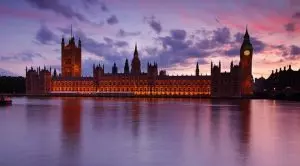 The UK Government has recently announced the results of its year-long review of the country’s gambling laws as part of its planned significant reforms of the sector’s regulation aimed at ensuring more effective rules to protect the most vulnerable members of society.
The UK Government has recently announced the results of its year-long review of the country’s gambling laws as part of its planned significant reforms of the sector’s regulation aimed at ensuring more effective rules to protect the most vulnerable members of society.
As revealed at the time when the long-expected White Paper on gambling, called “High stakes: gambling reform for the digital age”, was finally published, the largest-ever overhaul of the UK gambling regulation will also include a review of the fees for gambling premises licences that local authorities could decide to change eventually. In addition, the planned reforms are set to establish new powers for local leaders to conduct so-called “impact assessments” when they take new licence applications into consideration.
At the time they announced the results of their gambling review, lawmakers shared that the move would eventually see the regimes for gambling and alcohol licensing pretty much aligned.
As previously reported by Casino Guardian, the announcement of the Government’s findings and proposals in the White Paper published at the end of April, followed a call for evidence and was based on approximately 16,000 written submissions received by the Department for Culture, Media and Sport (DCMS). The recommendations are set to be taken into consideration as part of further consultation by the Government, or by the UK Gambling Commission (UKGC), and the potential changes could be addressed through the regulator’s Licence Conditions and Codes of Practice (LCCP).
Multiple New Measures Recommended by Local Lawmakers to Ensure Better Regulation of the UK Gambling Market
 The Government has taken into consideration land-based gambling and, as a result, has proposed to adjust the 80/20 ratio that currently governs the balance of Category B and Category C/D gaming machines situated in arcade and bingo venues across the UK, making it 50/50. According to local lawmakers, such a move would make sure that gambling businesses would maintain a balanced offer of gambling products that provide flexibility and choice to their customers.
The Government has taken into consideration land-based gambling and, as a result, has proposed to adjust the 80/20 ratio that currently governs the balance of Category B and Category C/D gaming machines situated in arcade and bingo venues across the UK, making it 50/50. According to local lawmakers, such a move would make sure that gambling businesses would maintain a balanced offer of gambling products that provide flexibility and choice to their customers.
The recently issued White Paper reveals that some licensing authorities in the UK had shared concerns that they did not have enough powers to shape the gambling sector in their local areas in line with British lawmakers’ considerations.
That is why the major regulatory body in the country, along with local licensing authorities, suggested that so-called the implementation of cumulative impact assessments (CIAs) that take into account a range of information regarding a local area. Such data could include various types of information, such as local crime rates, health-related statistics, anti-social behaviour and disorder statistics, complaints recorded by the authority, environmental health complaints, as well as evidence obtained through local consultations or provided by local leaders.
The Department for Culture, Media and Sport also shared there was a suggestion that extending the cumulative impact assessments should be extended to provide licensing authorities with the opportunity to take into account mostly evidence-based factors as part of their decision-making process. Apart from that, the DCMS also believes that extending the CIAs could allow British licensing authorities to establish a presumption against the provision of a premises licence in some areas of the country.
Technology Transformed the Gambling Sector and Users’ Gambling Habits
 As the Gambling Minister Stuart Andrew noted, technological development had fully transformed the way people bet and the majority of people do so without any issues. Unfortunately, some people find it hard to control their gambling, so the 24/7 availability of online betting services had resulted in financial losses and physical and mental health issues, including suicide attempts, for some gambling addicts.
As the Gambling Minister Stuart Andrew noted, technological development had fully transformed the way people bet and the majority of people do so without any issues. Unfortunately, some people find it hard to control their gambling, so the 24/7 availability of online betting services had resulted in financial losses and physical and mental health issues, including suicide attempts, for some gambling addicts.
Since the legislation covering the UK gambling sector was created in 2005, it had to be updated in a way reflecting the current trends and developments in the industry in order to become fit to regulate the country’s gambling market the way it is. The regulation of the sector needs to be updated to reflect the current state of the market and the problems that are specific to that current state, with the Government aimed at protecting players who are considered at risk of gambling harm.
The UK Government also proposed a bunch of other measures at the time when it issued its White Paper on gambling.
As Casino Guardian reported at the time, British lawmakers suggested the implementation of a statutory levy on gambling operators to make sure that they make an obligatory contribution to funding research, education, prevention and treatment of problem gambling, including through the National Health Service (NSH).
Apart from that, legislators suggested reducing online slots games’ stake limits to between £2 and £15 per spin in an effort to make sure gamblers would not accumulate excessive losses.
The UK Gambling Commission would also be given some extra powers in order to help it tackle black market operators from targeting local customers through court orders. The gambling regulatory body would also work in collaboration with local Internet Service Providers (ISPs) to take down and block online gambling platforms that are being illegally operated on the territory of the country.
Newest Restrictions Could Drive Gamblers Away to the Black Market
 As described by the UKGC boss Andrew Rhodes, the gambling review of the UK Government is a once-in-a-generation opportunity for the authorities to make sure positive change for the country’s gambling sector and people impacted by it has finally been initiated. At the time when the White Paper was published, the gambling regulator pledged to work with the Government and other partners to make the recommended changes a reality.
As described by the UKGC boss Andrew Rhodes, the gambling review of the UK Government is a once-in-a-generation opportunity for the authorities to make sure positive change for the country’s gambling sector and people impacted by it has finally been initiated. At the time when the White Paper was published, the gambling regulator pledged to work with the Government and other partners to make the recommended changes a reality.
Despite the enthusiasm of both anti-gambling campaigners, lawmakers and regulatory bodies, some gambling industry officials have warned that the enforcement of further restrictions on the already much-regulated sector could drive gamblers away and encourage them to gamble in the black unregulated market.
While the new policies suggested by UK lawmakers following the lengthy review of the country’s gambling legislation might successfully prevent younger audiences from indulging in problem gambling, people who are already hooked on gambling are likely to look for alternative ways to continue gambling, industry officials have warned. Some analysts have also explained that the more restrictions are unveiled by the authorities, the more likely people will choose to take a different path to get whatever they want, including using illegal online gambling websites that are unregulated and often dangerous.
The UK Government will also have to make sure it deals with some issues regarding the new restrictions in order to make sure that it makes it impossible for gambling addicts to start using someone else’s IDs to gamble online to circumvent the measures unveiled by local lawmakers. For the time being, there is unfortunately no efficient way to verify if an online gambler is actually using their own ID or someone else’s.
According to former gambling addicts, it is extremely important for the Government not only to address increased levels of gambling by unveiling further restrictions for the sector but also to ensure there is an adequate professional treatment that would help problem gamblers realise their compulsive behaviour is an issue and address their problems with the necessary attention and care.
- Author


